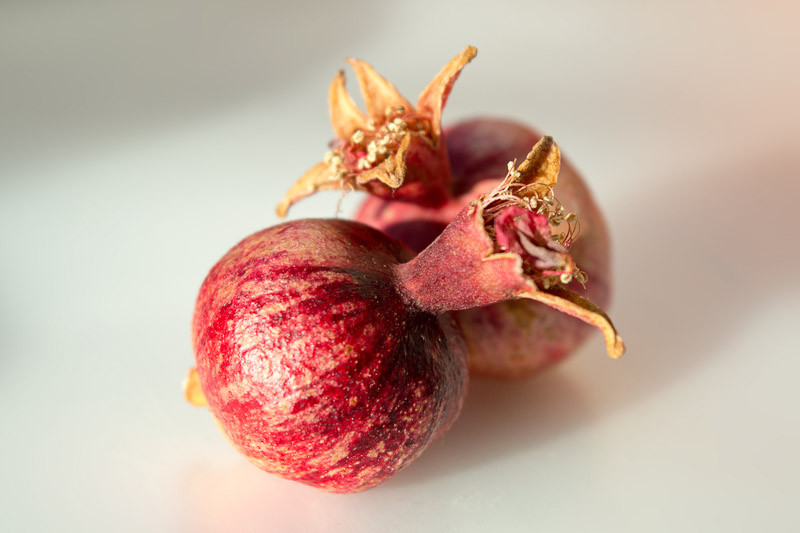Pomegranate
Punica granatum, commonly known as the pomegranate tree, is a deciduous or evergreen shrub or small tree that can grow up to 20 feet (6 meters) tall, although there are dwarf varieties no taller than 4 feet (1.2 meters). It features multiple stems, glossy, lance-shaped leaves, and a rounded, bushy growth habit. Its branches may have thorns.
- Hardiness: The pomegranate is remarkably adaptable but thrives in well-drained soil and full sun. It is hardy in USDA Zones 7 to 11, making it more suited for warmer climates. However, some dwarf varieties can withstand colder temperatures when grown in containers and brought indoors during winter.
- Flowers and Bloom Time: The pomegranate produces vibrant, funnel-shaped flowers ranging in color from red to orange and sometimes even white. These eye-catching blossoms appear in late spring to early summer and are generally followed by the fruit, which matures in late summer or early fall.
- Uses: Besides its ornamental appeal, pomegranate trees are cultivated for their juicy, edible fruits filled with ruby-red arils. The fruit is popular in cooking, juice making, and even in traditional medicine. The tree’s wood can be used for crafting, and its flowers can be a nectar pollinator source.
- Benefits: The pomegranate is not just a feast for the eyes; it’s also packed with antioxidants and vitamins, particularly in its arils and juice. These nutrients have been linked to various health benefits, such as improved heart health and reduced inflammation. The tree itself is relatively low-maintenance, drought-tolerant, and pest-resistant, making it a robust and beneficial addition to gardens and landscapes.
Overall, the Punica granatum offers a blend of beauty, utility, and health benefits, making it a diverse and rewarding plant to grow.

